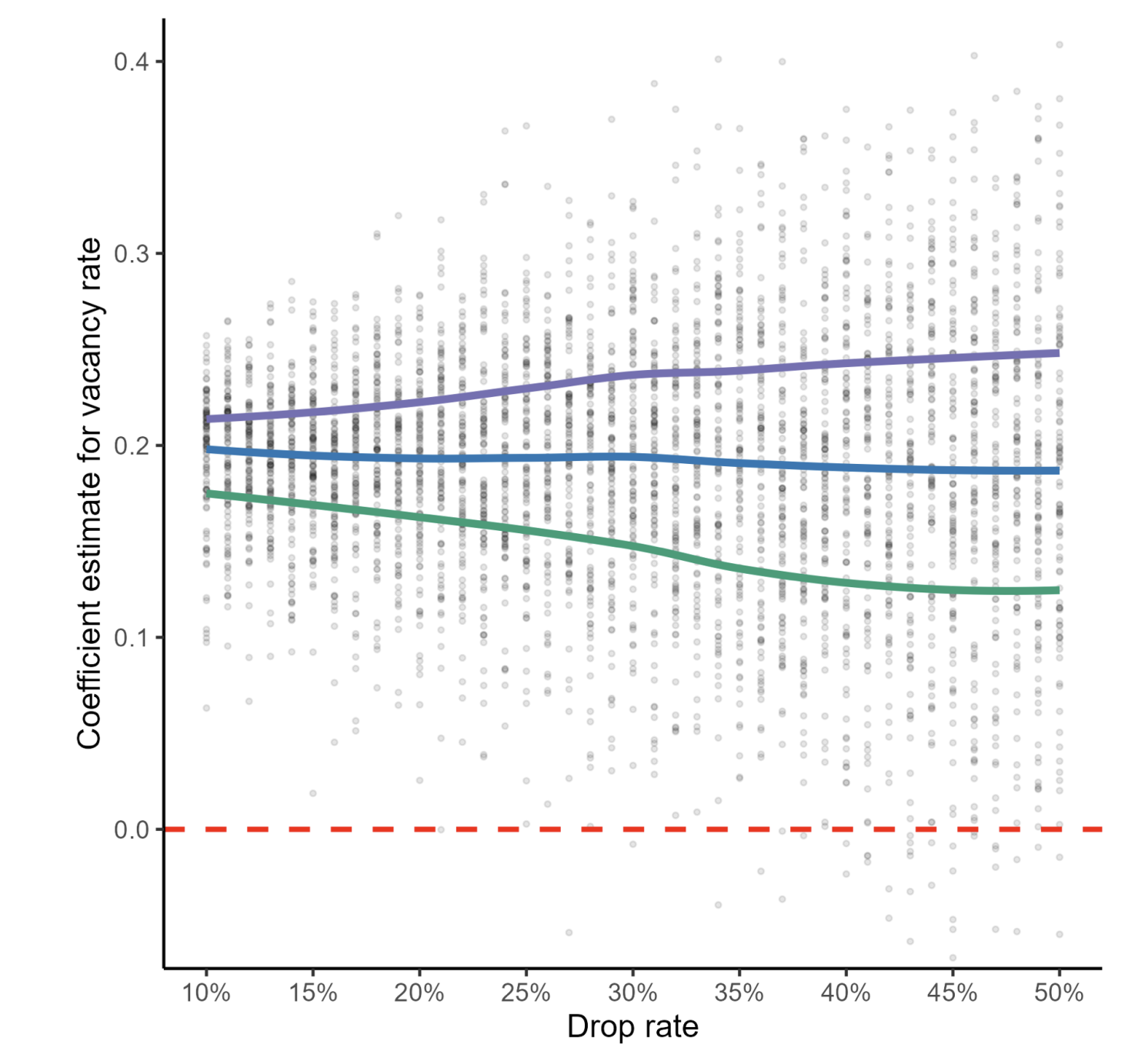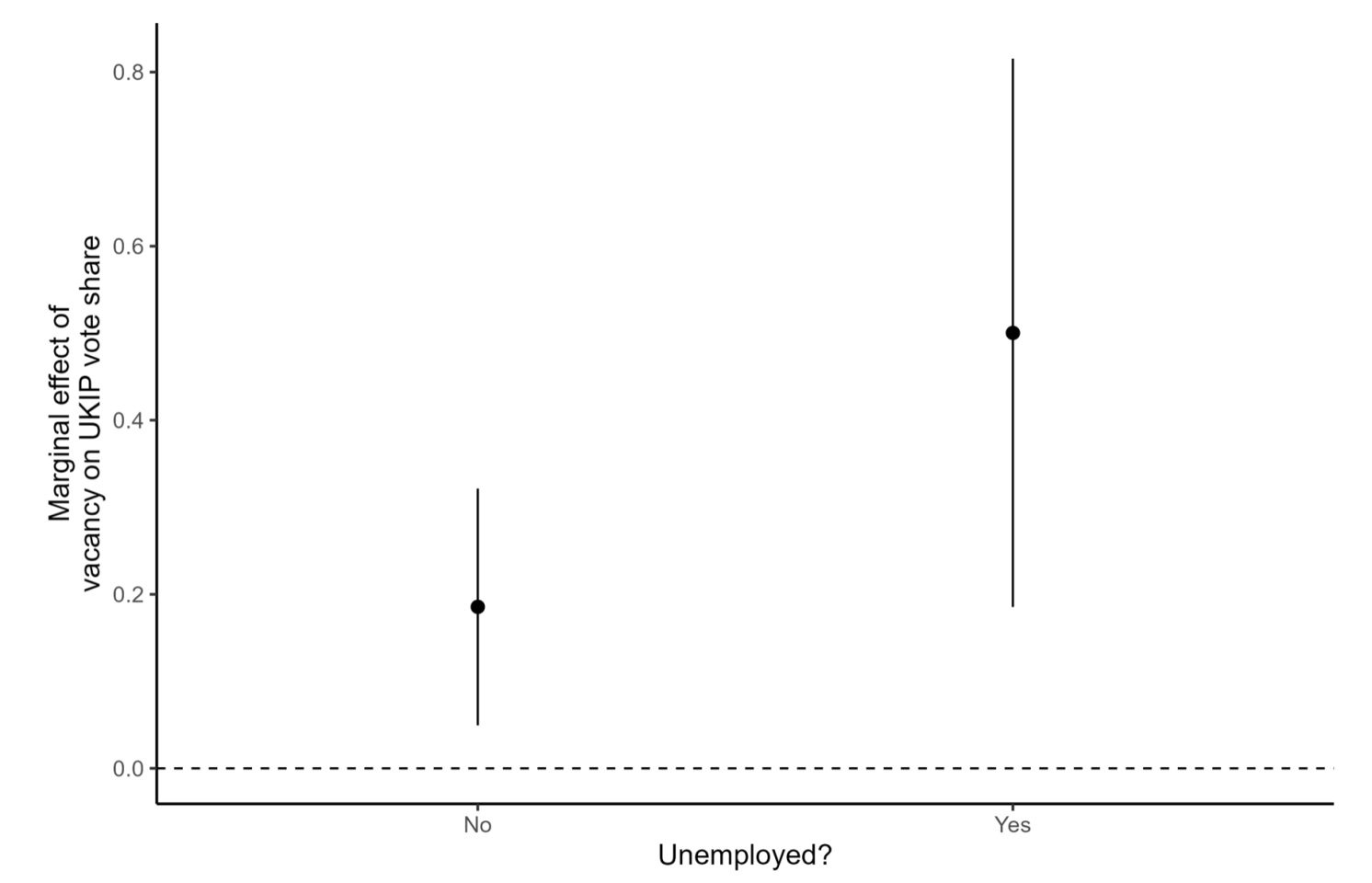This is Naked Capitalism fundraising week. 1140 donors have already invested in our efforts to combat corruption and predatory conduct, particularly in the financial realm. Please join us and participate via our donation page, which shows how to give via check, credit card, debit card, PayPal, Clover, or Wise. Read about why we’re doing this fundraiser, what we’ve accomplished in the last year, and our current goal, more original reporting.
Yves here. This post showcases the premise that populism is a bad thing, which is a revealing premise in a nominally democratic system. Nevertheless, the authors use store closures on high streets as a proxy enduring poor economic conditions. They find that in the UK, those store shutterings are correlated with the propensity to vote for UKIP. The recommendation is long-term revitalization schemes plus shorter-term measures to improve appearances.
To raise some quibbles: correlation is not causation. In New York City, years after the financial crisis, vacant storefronts became widespread in tony areas like upper Madison and Third Avenue on the Upper East Side. There were also unheard-of vacancies in the most exclusive area of Madison Avenue, from 57th Street to 72nd Street. In the uppper Madison/Third Avenue cases, I was told landlords held off on rent increases for a few years after the crisis, and then overwhelmingly put through big rent rises, typically double the former level. They reportedly also were not cutting them even after the space remained vacant for 18 months or more. There are long NYC-centric explanations for this behavior.
But the point as it applies to this story is it seems extremely unlikely that many stores remaining vacant for long periods (often 3-5 storefronts a block, as in most assuredly enough to be noticed) led to a change in voting behavior. The authors of this analysis admittedly did find that tendency to move to the right was greatest among the unemployed. Manhattan is such a high housing cost area that you need a decent income to remain, which means a job or a lot of assets.
As for the recommendation to try to pretty up high streets with many closed stores, at first that struck me as an exercise in Potemkin villaging. But I hate to say it, that sort of thing would probably give a psychological boost. Where I live now was hit hard in the Asian crisis, the 2007-2008 crisis, and then as a tourist destination, by Covid. There are still closed stores in all but the most hopping areas, like on the beach, and too many places that look shabbier than they ought to. I sometimes grumble to a cabbie when he has good enough English to converse that the city should invest in painting the 20% worst looking buildings on major streets, that it would make a huge difference to how the city looked, as well as subsidizing replacing badly worn banners. And I notice when I do see a recently painted partly vacant building that I assume a new tenant is coming in. So I am exhibiting exactly the sort of reaction that this article posits takes place.
Another way to view this finding is that spending even if the impact is only cosmetic, to show that these towns have not been forgotten, is still better than nothing.
By Thiemo Fetzer, Professor of Economics University Of Bonn; Theme Leader for Globalisation and Global Crises, Centre for Competitive Advantage in the Global Economy (CAGE); Professor of Economics University Of Warwick; Jacob Edenhofer, DPhil student in Politics, Nuffield College University Of Oxford; and Prashant Garg, PhD student Imperial College London. Originally published at VoxEU
Support for right-wing populist parties in many advanced democracies is characterised by considerable regional heterogeneity. This column uses data on high-street vacancies in the UK to show that visible signs of local decline play a crucial role in driving support for right-wing populists. One important policy implication is that countering populism requires not only regional policies whose returns materialise over the longer term, but also measures aimed at reducing the visible signs of decline in the short term.
Support for right-wing populist parties in many advanced democracies is characterised by considerable regional heterogeneity, with these parties being especially successful in regions where manufacturing traditionally accounted for a large share of local economic activity (Autor et al. 2020, Broz et al. 2021, Guriev and Papaioannou 2022, Rodríguez-Pose 2018, Rodrik 2021). In many instances, these regions have become fertile ground for populist sentiment, partly due to the visible externalities of economic downturns and austerity (Fetzer 2019), such as increasing high-street vacancies, homelessness (Fetzer et al. 2023), and crime (Bray et al. 2022, Che et al. 2018, Facchetti 2023, 2024, Fetzer 2023). In a new paper (Fetzer et al. 2024), we examine the relationship between local economic decline and support for right-wing populism. Specifically, we use novel data on high-street vacancies across England and Wales to explore how this visible marker of decline influences political behaviour.
High-Street Vacancies as Indicators of Local Decline
Our central contribution is empirical, namely, to have gathered novel data on high-street vacancies. This matters because vacancies serve as a visible and potent indicator of local economic decline. By virtue of their visibility, high-street vacancies are a particularly good proxy for local economic decline, which individuals are therefore likely to use to update their beliefs about local economic activity. Other indicators, such as unemployment rates at the local authority level, are noisier signals of local economic activity, harder to perceive, and thus less likely to shape attitudes and political behaviour. Hence, we improve on previous studies on the effect of local decline on populist support, most notably those by Arzheimer et al. (2024) and Green et al. (2024), in one key respect: these studies use survey items related to local decline to measure the latter, which carries the risk that results are driven by misperceptions or misreporting of decline. By using an objectively measurable, specific, and highly visible component of decline – high-street vacancies – we can circumvent that problem.
Growing vacancies themselves may be the product of structural change: the shift from offline to online commerce since the late 2000s and its heterogeneous effects across communities. While the structural change may have beneficial effects for consumer welfare, it may be highly heterogeneous across individuals if the mode of consumption itself is considered a valuable social consumption good, contributing to a sense of connectedness, belonging and community cohesion.
This study uses data from the Local Data Company (LDC), covering approximately 83,000 commercial premises across 197 towns in England and Wales from 2009 to 2019. The data reveal substantial regional variation in vacancy rates, with higher rates clustered in the northeast of England, where many regions experienced a marked increase in vacancies following the 2008 financial crisis.
Figure 1 Geographic distribution of high-street vacancies
Note: This figure visualises the geographic distribution of high-street vacancies by local authority in England and Wales. The map highlights considerable regional variation, with higher vacancy rates predominantly in the northeast of England, where many local authorities exhibit vacancy rates exceeding 10%. The data covers approximately 83,000 physical premises across 197 towns in 93 different local authorities between 2009 and 2019.
The geographic clustering of high-street vacancies in certain regions, particularly in the northeast, underscores the uneven impact of economic decline across the country. These vacancies are not merely a symptom of economic distress but also contribute to shaping the political landscape by reinforcing perceptions of neglect and decline.
The Rise of UKIP and the Role of Local Decline
The United Kingdom Independence Party (UKIP) capitalised on these sentiments, drawing significant support from regions experiencing high levels of economic decline. We examine the relationship between high-street vacancies and support for UKIP, using data from the Understanding Society Survey to track political preferences over time. The analysis reveals a robust positive association between high-street vacancies and UKIP support, even after controlling for various individual and regional factors.
Figure 2 High-street vacancy rates and UKIP support

Note: This figure illustrates the positive relationship between high-street vacancy rates and support for UKIP. It demonstrates the robustness of this relationship by testing it across different subsets of local authorities. Even when a random portion of local authorities is excluded from the analysis, the positive association remains strong. The purple line represents the overall trend, showing that as vacancy rates increase, so does the probability of supporting UKIP. The consistent results across different scenarios reinforce the reliability of this finding.
The results suggest that visible signs of local decline, such as high-street vacancies, play a crucial role in driving support for right-wing populists. This relationship is not driven by individuals who work or used to work in the retail sector, suggesting that our results are due to populist-boosting effects of decline’s spatial externalities, rather than greater economic insecurity at the individual level.
Heterogeneity in Populist Support
The impact of high-street vacancies on populist support is not uniform across all regions or demographic groups. Our study finds that unemployed individuals are more likely to support UKIP in response to increasing vacancies, reflecting their heightened vulnerability to local economic shocks.
Figure 3 Heterogeneity in UKIP support by employment status

Note: This figure depicts the marginal effect of high-street vacancy rates on UKIP support, differentiated by unemployment status. We control for: age, an outright homeownership dummy, a dummy for chronic health conditions, as well as age and region-by-quarter fixed effects. The results show that the effect of high-street vacancies on UKIP support is significantly stronger for unemployed respondents, highlighting the heightened sensitivity of economically vulnerable groups to local economic distress.
These findings underscore the importance of addressing the visible consequences of economic decline to mitigate the rise of right-wing populism. Policies aimed at revitalising declining high streets and improving local economic conditions could play a crucial role in countering the appeal of populist parties. We anticipate that the pandemic-induced migration from urban agglomerations to the countryside, including the rise of remote work, may help reverse this trend.
Conclusion: Implications for Policy and Future Research
This study highlights the critical role of visible and local economic decline in shaping political preferences and fuelling the rise of right-wing populism. The visible impact of high-street vacancies on support for UKIP underscores the need for targeted policies to address the underlying causes of economic decline and its spatial externalities. Future research should focus on exploring the causal mechanisms with tighter identification underlying this relationship and identifying effective strategies for mitigating the negative effects of local economic decline on political behaviour.
More broadly, our findings suggest that stymieing far-right populists might require that levelling-up measures with longer-term returns – including investments to improve the skill base of the workforce and infrastructure in declining regions (Bartik 2020, Gold and Lehr 2024, Lee 2024) – are complemented with shorter-term measures aimed at addressing particularly visible and easy-to-perceive spatial externalities, such as high-street vacancies.
See original post for references


